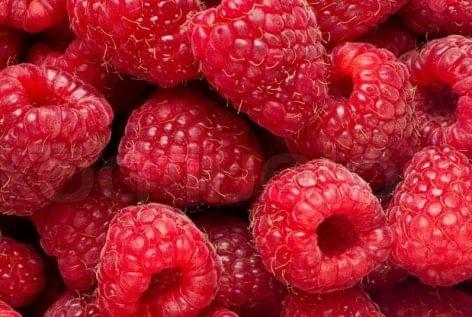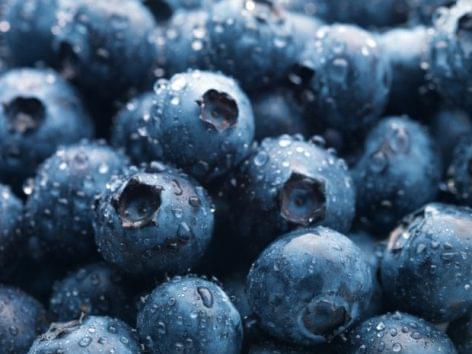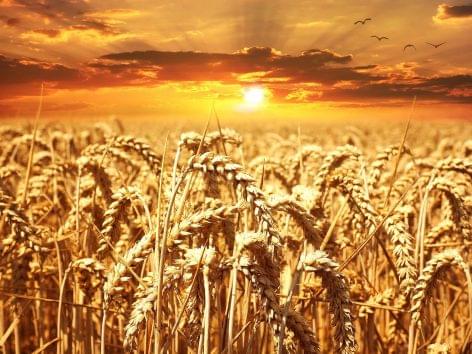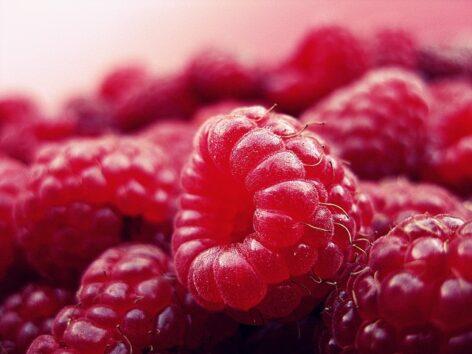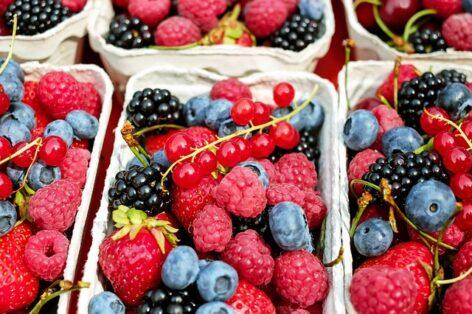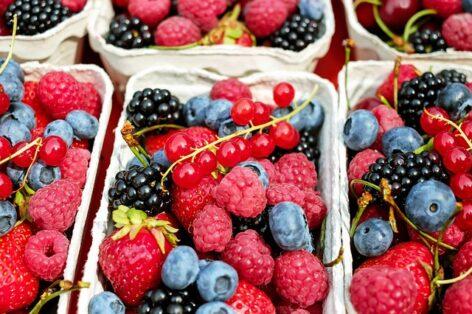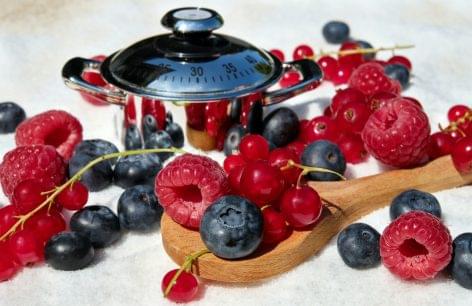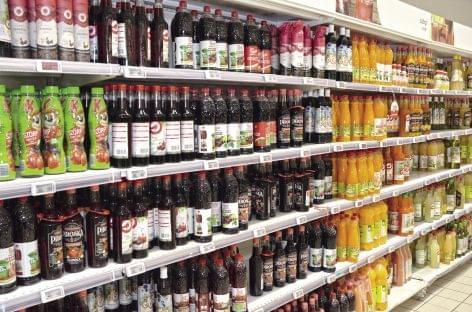Tag "málna"
It’s not just Hungary that is having trouble with raspberries
Date: 2025-09-08 09:40:56
Raspberries remain one of the world’s most popular berries, yet the 2025 season has brought difficulties across multiple regions. Extreme weather, rising labor costs, and workforce shortages have affected both...
Read more
Berries may make a comeback – if we adapt
Date: 2025-07-30 11:08:42
Climate change and labor shortages have greatly transformed the Hungarian berry sector, but modern technology and new varieties provide an opportunity for renewal, said Ferenc Takács, Vice President of FruitVeb,...
Read more
Raspberry among the trees: new hope for berry production hit by climate change
Date: 2025-07-11 11:23:08
One of the most popular fruits of the summer, raspberries, are now receiving special attention not only in the markets but also in the focus of agricultural research. While shoppers...
Read more
No more raspberries, say hello to figs
Date: 2024-11-07 10:37:49
Owing to the climate change, plant species that once thrived in the region are disappearing from the Carpathian Basin. Raspberries are scarce, while figs and some banana varieties are becoming...
Read more
(HU) Komoly változások jöhetnek a boltok polcain a klímaváltozás miatt
Date: 2024-09-05 12:56:59
The consequences of climate change are increasingly serious in the Carpathian Basin, where plant species that were previously well adapted to local conditions may disappear, but the climate is no...
Read more
Hungarian raspberry production decreased, imports increased
Date: 2024-08-07 10:26:01
In recent years, raspberry production in Hungary has shown a significant decline, while raspberry imports show changing trends. Due to climate change and economic factors, it is increasingly difficult for...
Read more
The producer price of domestic raspberries is lower
Date: 2024-08-06 09:00:21
According to Eurostat data, raspberries were grown on 180 hectares in Hungary in 2023, and the annual yield was between 460 and 540 tons in recent years. According to KSH...
Read more
Domestic berry fruit cultivation could be saved
Date: 2024-07-10 09:00:04
Even though there is a demand for berries from consumers and the processing industry, domestic cultivation has been pushed into the background in recent decades. Partly due to climate change...
Read more
The raspberry growing area has been continuously decreasing since the turn of the millennium
Date: 2023-08-02 09:00:42
According to KSH data, raspberries were grown on 1,500 hectares in Hungary at the turn of the millennium, and since then the cultivated area has been continuously decreasing. Eurostat data...
Read more
Red berries: cooling, refreshing flavors for warm summer days
Date: 2023-06-15 10:00:59
On this year’s Fruit and Vegetable Day, the focus is on red berries, which include many summer fruits: currants, raspberries, blueberries and blackberries, and their different types. Berries are generally...
Read more
While raspberries are becoming more and more popular abroad, their growing area is getting smaller and smaller here
Date: 2022-08-11 14:26:35
According to KSH data, raspberries were grown on 1,500 hectares in Hungary at the turn of the millennium, and since then the cultivated area has been continuously decreasing. Serbia is...
Read more
Most types of jam worth buying from store, since canning has become so expensive
Date: 2022-07-28 08:57:38
Canning certain jams at home costs almost twice as much as high-quality store-bought jams, because the fruit in question costs twice as much in the markets this year as at...
Read more
Raspberry growing is in trouble
Date: 2021-08-18 11:28:00
Raspberry production in the European Union also felt the frosty spring of this year, with less raspberries produced in Poland and Spain this year, but Moroccan imports also declined. In...
Read more
One eye is crying, the other is laughing…
Date: 2021-01-19 10:16:08
Veronika Kisvári, buying and sales director of Bognár-Vin Kft. (the distributor of Ági fruit syrups) reported to our magazine that the pandemic restructured the fruit syrup market very much: retail...
Read more
A record amount of raspberries and blackberries grown in the Pilis Park Forest
Date: 2018-07-18 11:09:55
A record amount of forest fruits has been grown this year in the highlands of the Pilis Park Forest. Toursist visiting the Pilis Park Forest should pay attention to the...
Read more
FruitVeB: less and less raspberries grow every year
Date: 2018-06-19 11:40:04
Hungarian raspberry production is decreasing year after year. This year less than a thousand tons of raspberries will be harvested from 200 hectares of cultivated land, only half of which...
Read more
Climate change ruined Hungarian raspberry
Date: 2018-06-11 11:25:47
Raspberry production almost completely terminated, due to the destructive effects of climate change – agrarszektor.hu wrote. While in the 1980s there were large areas of raspberries in the country, the...
Read more
Raspberry production fell significantly
Date: 2017-06-19 11:40:52
The harvest of raspberries has begun, and although the taste of Hungarian raspberry is excellent, yet fewer producers on less area are dealing with this fruit – according to the...
Read more
Raspberry production may cease in Hungary
Date: 2016-08-12 11:35:35
Hungarian raspberry may disappear from the market, because according to the producers it is less and less worth to deal with the large labor-intensive manual activity – Magyar idők wrote...
Read more
